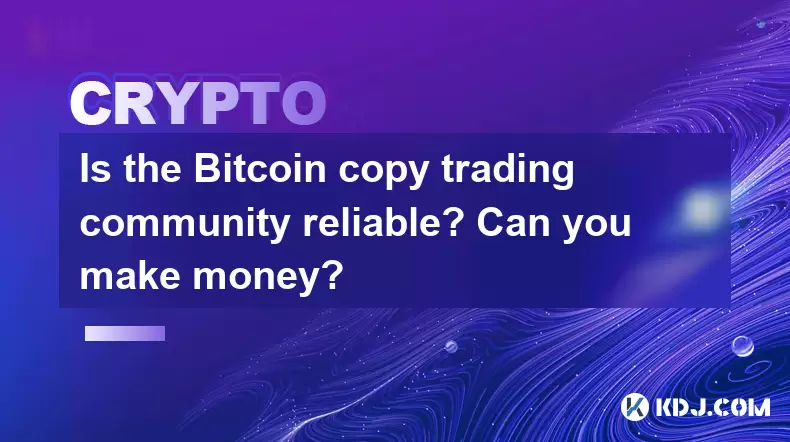-
 Bitcoin
Bitcoin $120100
1.16% -
 Ethereum
Ethereum $4329
2.25% -
 XRP
XRP $3.192
-0.22% -
 Tether USDt
Tether USDt $1.000
-0.01% -
 BNB
BNB $805.2
0.47% -
 Solana
Solana $178.7
-1.85% -
 USDC
USDC $0.9998
0.00% -
 Dogecoin
Dogecoin $0.2305
-1.62% -
 TRON
TRON $0.3445
1.17% -
 Cardano
Cardano $0.7940
-1.28% -
 Hyperliquid
Hyperliquid $44.44
-1.20% -
 Chainlink
Chainlink $21.86
-2.42% -
 Stellar
Stellar $0.4423
-0.15% -
 Sui
Sui $3.728
-3.84% -
 Bitcoin Cash
Bitcoin Cash $584.8
2.19% -
 Hedera
Hedera $0.2524
-2.87% -
 Ethena USDe
Ethena USDe $1.001
-0.02% -
 Avalanche
Avalanche $23.66
-0.78% -
 Litecoin
Litecoin $124.5
0.39% -
 Toncoin
Toncoin $3.399
1.77% -
 UNUS SED LEO
UNUS SED LEO $9.002
-0.44% -
 Shiba Inu
Shiba Inu $0.00001327
-2.10% -
 Uniswap
Uniswap $11.42
2.58% -
 Polkadot
Polkadot $3.957
-2.50% -
 Cronos
Cronos $0.1696
4.50% -
 Dai
Dai $1.000
0.00% -
 Ethena
Ethena $0.8139
3.04% -
 Bitget Token
Bitget Token $4.442
-0.38% -
 Monero
Monero $271.2
2.93% -
 Pepe
Pepe $0.00001168
-2.91%
Is the Bitcoin copy trading community reliable? Can you make money?
Bitcoin copy trading can be reliable if you choose reputable platforms and traders, but success isn't guaranteed; it requires careful risk management and diversification.
May 21, 2025 at 01:21 pm

Is the Bitcoin copy trading community reliable? Can you make money?
The world of Bitcoin and cryptocurrencies has opened up numerous opportunities for traders and investors. One of the most popular methods of participating in the crypto market is through copy trading. Copy trading allows individuals to replicate the trades of experienced traders automatically. This article will delve into the reliability of the Bitcoin copy trading community and explore whether it is possible to make money through this method.
What is Bitcoin Copy Trading?
Bitcoin copy trading is a method where less experienced traders can automatically copy the trades of more experienced traders. Platforms that offer this service connect novice traders with seasoned professionals, allowing them to mimic their trading strategies in real-time. The concept is simple: if a chosen trader buys Bitcoin, the same trade is executed in the follower's account. Conversely, if the trader sells, the follower's account mirrors this action.
The Reliability of the Bitcoin Copy Trading Community
The reliability of the Bitcoin copy trading community varies based on several factors. Choosing the right platform is crucial. Some platforms have robust systems in place to verify the performance and authenticity of traders, while others may be less stringent. It is essential to research and select a platform with a good reputation and transparent performance metrics.
Transparency and performance metrics are key indicators of reliability. Platforms that provide detailed statistics on traders' historical performance, risk levels, and other relevant data help users make informed decisions. For instance, platforms like eToro and ZuluTrade offer comprehensive performance data, which can be a good starting point for evaluating reliability.
User reviews and community feedback also play a significant role. Engaging with the community through forums and social media can provide insights into the experiences of other users. Positive reviews and a strong community presence can indicate a reliable platform, while negative feedback and reports of issues should raise red flags.
Can You Make Money with Bitcoin Copy Trading?
The potential to make money through Bitcoin copy trading exists, but it is not guaranteed. Selecting the right traders to follow is paramount. Successful traders typically have a proven track record of profitability and a consistent strategy. Platforms often rank traders based on their performance, making it easier to identify those with a history of success.
Risk management is another critical aspect. Even the best traders can experience losses, and it's important to understand the risk associated with the traders you choose to follow. Many platforms allow users to set risk parameters, such as maximum drawdown and loss limits, to protect their investments.
Diversification can also enhance the potential for profitability. Instead of copying a single trader, consider following multiple traders with different strategies and risk profiles. This approach can spread risk and increase the likelihood of overall positive returns.
Steps to Get Started with Bitcoin Copy Trading
If you're interested in trying Bitcoin copy trading, here are the steps to get started:
Choose a reputable platform: Research platforms like eToro, ZuluTrade, or others that offer Bitcoin copy trading. Look for platforms with strong user reviews and comprehensive performance data.
Create an account: Sign up for an account on the chosen platform. This usually involves providing personal information and verifying your identity.
Deposit funds: Fund your account with the amount you wish to allocate to copy trading. Ensure you only invest what you can afford to lose.
Select traders to follow: Browse the list of available traders and review their performance metrics, risk levels, and trading strategies. Choose traders that align with your investment goals and risk tolerance.
Set risk parameters: Many platforms allow you to set risk limits, such as maximum drawdown or loss limits. Use these tools to manage your risk effectively.
Monitor and adjust: Regularly review the performance of the traders you are following. Be prepared to adjust your selections based on their ongoing performance and your investment objectives.
Common Pitfalls to Avoid
While Bitcoin copy trading can be a lucrative opportunity, there are several pitfalls to avoid. Over-reliance on a single trader can be risky. If that trader experiences a downturn, your entire investment could be affected. Diversifying your selections can mitigate this risk.
Ignoring risk management is another common mistake. Always set and adhere to risk parameters to protect your capital. Failing to do so can lead to significant losses.
Not conducting thorough research can also lead to poor decisions. Take the time to understand the platform, the traders, and the associated risks before committing your funds.
The Role of Community in Bitcoin Copy Trading
The Bitcoin copy trading community plays a crucial role in enhancing the reliability and potential profitability of this method. Engaging with the community can provide valuable insights and help you stay informed about market trends and trader performance.
Participating in forums and social media groups dedicated to copy trading can offer a wealth of knowledge. These platforms allow users to share their experiences, discuss strategies, and provide feedback on traders and platforms. Being an active member of the community can help you make more informed decisions and avoid common pitfalls.
Learning from experienced traders within the community can also be beneficial. Many seasoned traders are willing to share their knowledge and strategies, which can help you refine your approach to copy trading.
Frequently Asked Questions
Q: How much money do I need to start Bitcoin copy trading?
A: The amount of money needed to start Bitcoin copy trading varies depending on the platform and your investment goals. Some platforms allow you to start with as little as $100, while others may require a higher minimum deposit. It's important to only invest what you can afford to lose and to consider your risk tolerance when determining your initial investment.
Q: Can I lose money with Bitcoin copy trading?
A: Yes, it is possible to lose money with Bitcoin copy trading. Even experienced traders can experience losses, and the volatile nature of the cryptocurrency market adds to the risk. It's crucial to set risk parameters and manage your investments carefully to mitigate potential losses.
Q: How do I know if a trader is reliable?
A: Evaluating the reliability of a trader involves looking at several factors, including their historical performance, risk levels, and trading strategy. Reliable platforms provide detailed performance metrics and risk indicators, which can help you assess a trader's reliability. Additionally, user reviews and community feedback can offer insights into a trader's consistency and trustworthiness.
Q: Is Bitcoin copy trading suitable for beginners?
A: Bitcoin copy trading can be suitable for beginners as it allows them to benefit from the expertise of experienced traders without needing to develop their own trading strategies. However, beginners should still take the time to understand the basics of cryptocurrency trading and the associated risks before starting. Engaging with the community and conducting thorough research can help beginners make more informed decisions.
Disclaimer:info@kdj.com
The information provided is not trading advice. kdj.com does not assume any responsibility for any investments made based on the information provided in this article. Cryptocurrencies are highly volatile and it is highly recommended that you invest with caution after thorough research!
If you believe that the content used on this website infringes your copyright, please contact us immediately (info@kdj.com) and we will delete it promptly.
- Bitcoin, Solana, MAGACOIN FINANCE: Navigating the 2025 Crypto Landscape
- 2025-08-12 00:30:13
- Cardano, ADA Holders, and Layer Brett: A Meme Coin with Real Utility?
- 2025-08-12 00:50:12
- Bitcoin, Michael Saylor, and Savvy Investors: A New Era of Digital Assets
- 2025-08-12 00:30:13
- Crypto Presales in 2025: Spotting the Next Big Thing with Analyst Insights
- 2025-08-12 00:50:12
- Cloud Mining in 2025: Bitcoin, Litecoin, and the Quest for Passive Income
- 2025-08-12 00:55:32
- Token Security, Agentic AI, Cybersecurity Guide: Navigating the New Frontier
- 2025-08-11 23:00:12
Related knowledge

How to purchase Aragon (ANT)?
Aug 09,2025 at 11:56pm
Understanding Aragon (ANT) and Its PurposeAragon (ANT) is a decentralized governance token that powers the Aragon Network, a platform built on the Eth...

Where to trade Band Protocol (BAND)?
Aug 10,2025 at 11:36pm
Understanding the Role of Private Keys in Cryptocurrency WalletsIn the world of cryptocurrency, a private key is one of the most critical components o...

What is the most secure way to buy Ocean Protocol (OCEAN)?
Aug 10,2025 at 01:01pm
Understanding Ocean Protocol (OCEAN) and Its EcosystemOcean Protocol (OCEAN) is a decentralized data exchange platform built on blockchain technology,...

Where can I buy UMA (UMA)?
Aug 07,2025 at 06:42pm
Understanding UMA and Its Role in Decentralized FinanceUMA (Universal Market Access) is an Ethereum-based decentralized finance (DeFi) protocol design...

How to buy Storj (STORJ) tokens?
Aug 09,2025 at 07:28am
Understanding Storj (STORJ) and Its Role in Decentralized StorageStorj is a decentralized cloud storage platform that leverages blockchain technology ...

Where to find the best price for Audius (AUDIO)?
Aug 11,2025 at 04:01pm
Understanding the Basics of Ethereum StakingEthereum staking refers to the process of locking up ETH tokens to support the security and operations of ...

How to purchase Aragon (ANT)?
Aug 09,2025 at 11:56pm
Understanding Aragon (ANT) and Its PurposeAragon (ANT) is a decentralized governance token that powers the Aragon Network, a platform built on the Eth...

Where to trade Band Protocol (BAND)?
Aug 10,2025 at 11:36pm
Understanding the Role of Private Keys in Cryptocurrency WalletsIn the world of cryptocurrency, a private key is one of the most critical components o...

What is the most secure way to buy Ocean Protocol (OCEAN)?
Aug 10,2025 at 01:01pm
Understanding Ocean Protocol (OCEAN) and Its EcosystemOcean Protocol (OCEAN) is a decentralized data exchange platform built on blockchain technology,...

Where can I buy UMA (UMA)?
Aug 07,2025 at 06:42pm
Understanding UMA and Its Role in Decentralized FinanceUMA (Universal Market Access) is an Ethereum-based decentralized finance (DeFi) protocol design...

How to buy Storj (STORJ) tokens?
Aug 09,2025 at 07:28am
Understanding Storj (STORJ) and Its Role in Decentralized StorageStorj is a decentralized cloud storage platform that leverages blockchain technology ...

Where to find the best price for Audius (AUDIO)?
Aug 11,2025 at 04:01pm
Understanding the Basics of Ethereum StakingEthereum staking refers to the process of locking up ETH tokens to support the security and operations of ...
See all articles

























































































